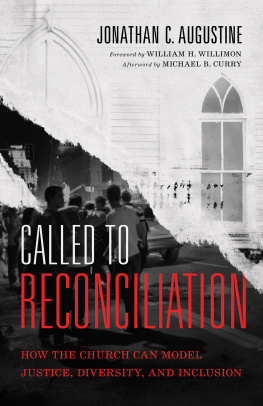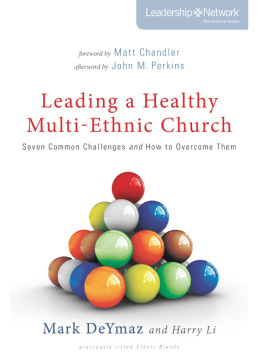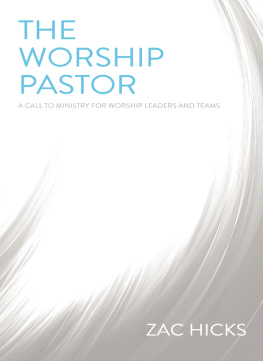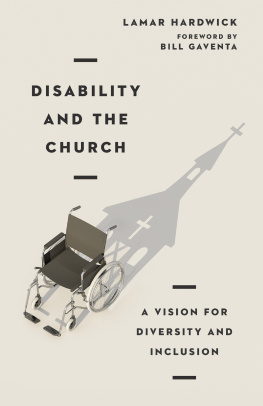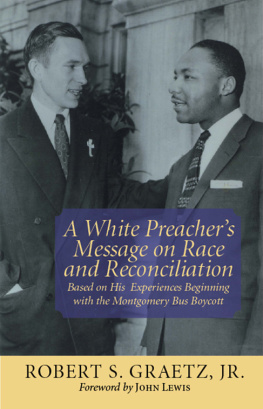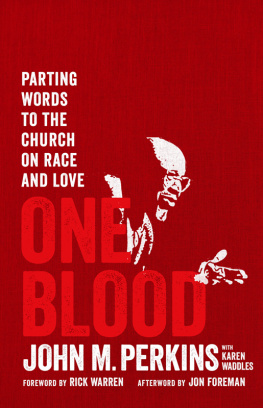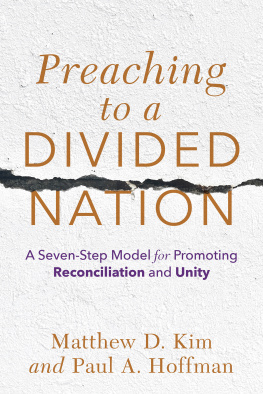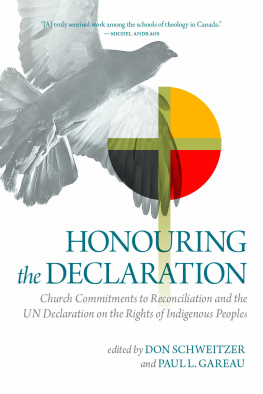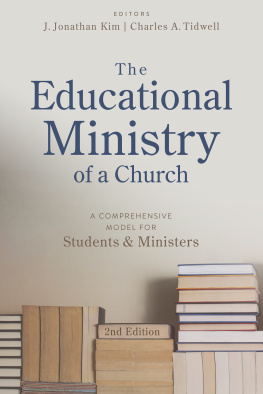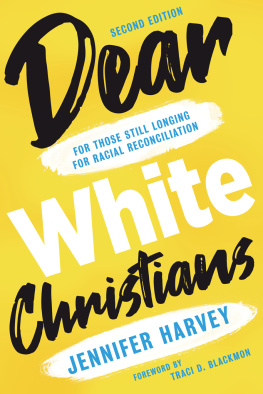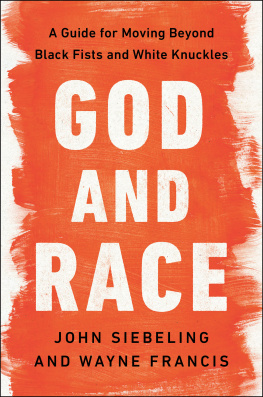Endorsements
In an age of despiritualization, greater emphasis is usually placed on social reconciliation than on salvific reconciliation. We tend in these days to ignore the consequences of our having lost the strength of our spiritual connection as we long to repair our relationships with our neighbors of different hues. Called to Reconciliation forces us to bring a more holistic vision to our quest to become the beloved community to which God is calling us with the fierce urgency of now.
James A. Forbes , senior minister emeritus, The Riverside Church, NYC
In a time of political polarization, Augustine reminds Christians that we are called to reconciliation. That calling is not just an invitation to some; it is a mandate for all (see 2 Cor. 5). Augustines training as a lawyer and pastor come together as he challenges all of us to find fresh ways to reweave the social fabric. A wonderful accomplishment!
L. Gregory Jones , president, Belmont University; author of Embodying Forgiveness
A book for our times. In this well-documented, insightful study, Augustine explores the nature of Christian reconciliation in its biblical, theological, social, and contemporary implications. The book surveys the broad concept of reconciliation while providing important implications for recovering it in church and society here and now.
Bill J. Leonard , professor of divinity emeritus, Wake Forest University
Augustine has clearly and creatively fixed the issue of countering racism within the context of Scripture, thus claiming the issue as a matter of formation for those who follow Jesus. And too, he turns the readers attention to the future by articulating a vision of hope that is reconciliation. A wonderful resource for those who seek discernment on the topic of racism via the way of faith in Jesus Christ.
Russell Kendrick , bishop, Episcopal Diocese of the Central Gulf Coast
Augustine has done the best and most comprehensive job I have yet seen not only of describing the racial divide and challenges in this country but also of giving us a hopeful way forward. Of the eight books Ive read in the past eighteen months on the topic of racial justice, this one by far resonates the most with me as something that can bring us together, even in a time of such deep division, around this central biblical and cultural necessity. I couldnt put it down, and it renewed my hope that we not only must, but we can, do this.
Timothy M. Smith , bishop, NC Synod, Evangelical Lutheran Church in America
In the tradition of theologians such as Walter Rauschenbusch, Howard Thurman, and James Cone, Called to Reconciliation is a masterful argument demonstrating that faith is thought and deed. Through the focus on reconciliation, the text provides a clear, biblically based pathway for people to begin to reimagine their connection to others and what this requires of them. This book could easily be applied to classrooms, church groups, and social organizations. In the midst of the intense and never-ending culture war that has erupted in response to the successes of the civil rights movement, this text provides an explanation of why this has happened and a vision of how to end the enduring and painful American internal conflict.
Eric L. McDaniel , associate professor, University of Texas at Austin; author of Politics in the Pews
An important book and a timely book. Augustine draws the call to reconciliation from the very heart of the gospel of Jesus Christ. What has been far too peripheral (where it has even existed) in the American evangelical church has been summoned to the center of the churchs life. I commend this work to pastors, to church study groups, and to the college and seminary classroom.
R. Robert Creech , professor and director of pastoral ministries, George W. Truett Theological Seminary, Baylor University
Augustine has issued a call to the church to engage its diversity, or sad lack of it, if it is to take up the all-important work of reconciliation. Augustines mastery of theology, political theory, sociology, and the law enables him to describe a path forward. It is way past time for our congregations to give up on their segregated ways and become beacons and witnesses for true reconciliation. For any in the church looking for a partner in the Christian vocation of reconciliation, they will find one in this author and be enriched by his wisdom and passion.
David M. Greenhaw , president emeritus, Eden Theological Seminary
Augustines multidisciplinary work is a gift to the church, by which I mean the diverse ekklsia envisioned by Jesus. Drawing on and synthesizing a wide array of resources from theology, politics, and law, Augustine has written a powerful and inspiring book for individual Christians and congregations ready to work for reconciliation. He calls the church to lead in our societys larger fight to end systemic racism by recovering the heart of a Gospel message that affirms the equal worth and dignity of all people.
Amanda Tyler , executive director, Baptist Joint Committee for Religious Liberty
This masterful work is an essential tool for all people of good will as we seek solutions to the serious and deep fissures challenging our society. A road map for how we come together when we seem so far apart, this is a must-read for anyone navigating the intersection of faith and politics.
Leah D. Daughtry , national presiding prelate of The House of the Lord Churches, author, and activist-organizer
Half Title Page
Title Page
Copyright Page
2022 by Jonathan C. Augustine
Published by Baker Academic
a division of Baker Publishing Group
PO Box 6287, Grand Rapids, MI 49516-6287
www.bakeracademic.com
Ebook edition created 2022
All rights reserved. No part of this publication may be reproduced, stored in a retrieval system, or transmitted in any form or by any meansfor example, electronic, photocopy, recordingwithout the prior written permission of the publisher. The only exception is brief quotations in printed reviews.
Library of Congress Cataloging-in-Publication Data is on file at the Library of Congress, Washington, DC.
ISBN 978-1-4934-3537-1
Unless otherwise noted, Scripture quotations are from the New Revised Standard Version of the Bible, copyright 1989 National Council of the Churches of Christ in the United States of America. Used by permission. All rights reserved.
Baker Publishing Group publications use paper produced from sustainable forestry practices and post-consumer waste whenever possible.
Dedication
To the memory of my precious mother,
Jeanne Cunningham Augustine (19302020)
Contents
Endorsements
Half Title Page
Title Page
Copyright Page
Dedication
Foreword by William H. Willimon
Acknowledgments
Introduction
Reconciliation in Context
The Divided States of America
Social Divisions and the Churchs Ministry of Reconciliation
Conclusion
Part 1: The Theology of Reconciliation
1. The Trajectory of Reconciliation: Definitions and Peters Leadership in the Early Church
Defining and Contextualizing Reconciliation: Salvific, Social, and Civil
Peters Leadership in Moving the Church toward Reconciliation: The Original Use of the Word Church
The Church Was Born as a Jewish Assembly
Reconciliation under Peters Leadership: The Church Admits Gentiles as the Other
2. Social Reconciliation: Pauls Theology of Equality in Christ Jesus
Pauls Theology in Moving the Church toward Reconciliation
Social Reconciliation in Galatians, 1 Corinthians, and Romans
Applying Social Reconciliations Threefold Criteria to Pauls Theology of Equality

